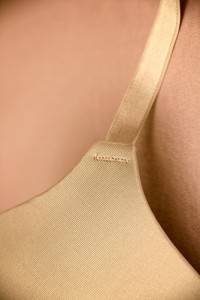 Researchers at the Fred Hutchinson Cancer Research Center (FHCRC) conducted a population-based, case-control study to understand whether the use of bras by postmenopausal American women could be linked to breast cancer development.
Researchers at the Fred Hutchinson Cancer Research Center (FHCRC) conducted a population-based, case-control study to understand whether the use of bras by postmenopausal American women could be linked to breast cancer development.
Even though rumors exist about this possible link, there is a scarcity of credible scientific studies addressing this issue.
In the study entitled “Bra Wearing Not Associated with Breast Cancer Risk: A Population-Based Case–Control Study” and published in the Cancer Epidemiology, Biomarkers and Prevention journal, the researchers designed a population study in the Seattle–Puget Sound metropolitan area, comparing 454 invasive ductal carcinoma (IDC) cases and 590 invasive lobular carcinoma (ILC) cases diagnosed between 2000 and 2004 with 469 control women between 55 to 74 years of age.
Information regarding bra-wearing habits and other breast cancer risk factors was registered trough direct interviews.
The team found that no aspect of bra wearing, including bra cup size, recency, average number of hours per day worn, wearing a bra with an underwire, or age first began regularly wearing a bra, was linked to increased risks of developing either IDC or ILC breast cancer among postmenopausal women.
[adrotate group=”3″]
 “We weren’t really surprised. We knew that the biological plausibility of a link between bras and breast cancer was really weak,” Dr. Lu Chen, a researcher in the Public Health Sciences Division at Fred Hutchinson and lead author of the study, said in a FHCRC press release.
“We weren’t really surprised. We knew that the biological plausibility of a link between bras and breast cancer was really weak,” Dr. Lu Chen, a researcher in the Public Health Sciences Division at Fred Hutchinson and lead author of the study, said in a FHCRC press release.
The study was partially motivated by a question circulating in the media for almost 20 years, starting in 1995 with the release of a book where the authors suggested that breast cancer was common in Western cultures, but not in indigenous cultures because women in developed countries wear bras. They concluded that constant use of bras blocked the efficient elimination of toxins from the lymphatic system, resulting in breast cancer. Furthermore, a 1991 Harvard study also claimed to have found a link between bra-wearing and breast cancer.
However, these theories were demystified by the American Cancer Society (ACS), pointing the multiple study design flaws such as lack of adjustment for breast cancer risks including weight and age.
Nonetheless, these rumors have persisted until the present day, leading to misguided and potentially harmful information.
“Among women who do not have a personal history of breast cancer, this concern could be a source of anxiety and a distraction from proven strategies for prevention and early detection. Among women already diagnosed with breast cancer, this claim might be a source of guilt,” Dr. Ted Gansler, director of medical content for the ACS added in the press release.
Regarding the methods and new information obtained from this recent study, Dr. Gansler added, “their use of sophisticated statistical methods relieves potential concerns regarding influence of other factors obscuring or distorting a potential connection between bras and breast cancer.”

